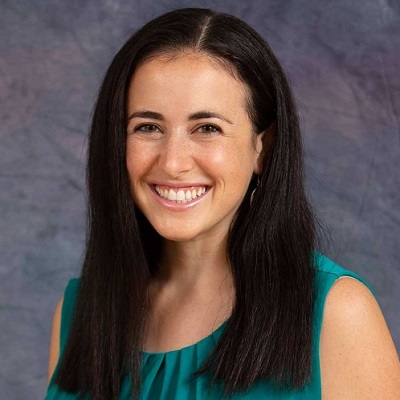Julia Rosenberg, M.D., M.H.S.
Assistant Professor of Pediatrics
Yale University

Assistant Professor of Pediatrics
Yale University
Key Words: Refugee, Mental Health, Language, Prevention, Community-Based Participatory Research
The US has recently increased the number of refugees it accepts ten-fold and welcomed over 80,000 evacuees from Afghanistan. Children in refugee families have often witnessed or experienced trauma, which can affect their mental and behavioral health. However, it is often challenging to diagnose mental and behavioral health problems in refugee children, especially because there are few screening questionnaires that can be used with refugee children. Translations of questionnaires that incorporate the nuances of language and culture are needed, especially for Dari and Pashto, the most common languages spoken in Afghanistan.
In addition, refugee children would also benefit from programs that prevent mental and behavioral health problems and help them to thrive. Because of cultural and language barriers, many programs that prevent mental and behavioral health problems are unavailable for refugee children. We developed a novel program to prevent mental and behavioral health problems for refugee children: “EMPOWER” (Emotions Program Outside the clinic and Wellness Education for Recent arrivals). EMPOWER promotes healthy habits, body awareness, and recognition of emotional health in oneself and others. Refugee children participate in age-appropriate and trauma-informed activities to promote resilience.
In this study, we first will prepare Dari and Pashto translations of a screening questionnaire to use with parents of Afghan refugee children to identify mental and behavioral health problems. These translations will be completed with members of the Afghan community who will participate in the research process and will identify cultural considerations. Second, we will evaluate EMPOWER by asking teachers to complete questionnaires about students’ behavior before and after participation. We will compare results to questionnaires completed by teachers of students who do not participate in EMPOWER.
Results will include (1) translated screening questionnaires that clinicians and teachers can use to help identify mental and behavioral health problems and (2) an evaluation of EMPOWER. With these results, we can prepare to share EMPOWER with other organizations working with diverse refugee children.
This study is relevant to child health because the US is welcoming more refugee children and families who need evidence-based mental health evaluations and preventive programs to allow opportunities to thrive.